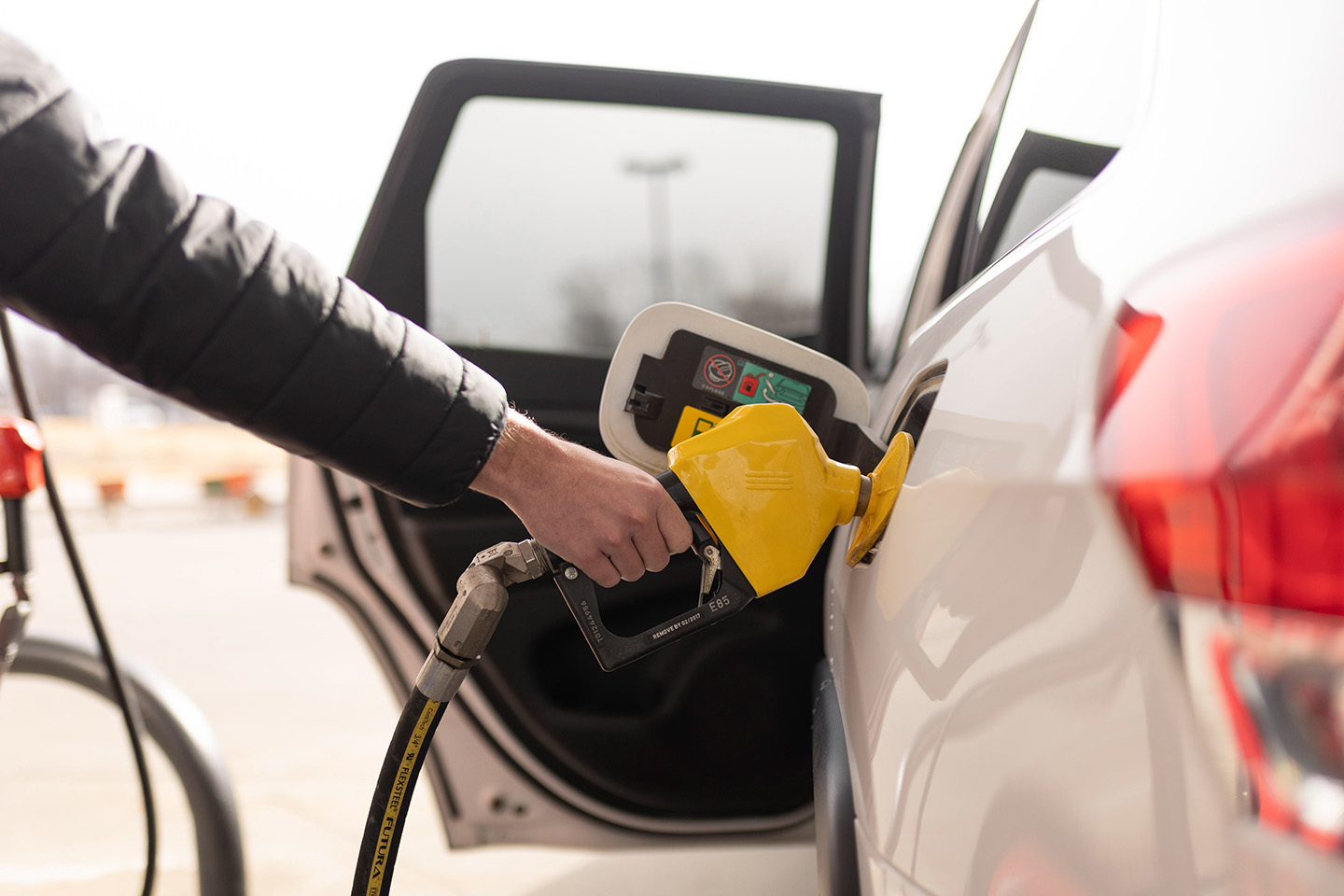
EPA blending volumes under the Renewable Fuel Standard is good news for farmers and consumers. (Photo: Joclyn Bushman/Iowa Soybean Association)
Final rule sets stage for biofuels growth
June 9, 2022 | Jeff Hutton
It’s good news for farmers and consumers.
Late last week, the Environmental Protection Agency (EPA) finalized blending volumes under the Renewable Fuel Standard (RFS) and rules for biodiesel and denied a backlog of small refinery exemption requests.
The Iowa Soybean Association (ISA), the Iowa Biodiesel Board (IBB) and other entities, applauded the decisions.
“Securing the future of bio-based diesel is critical to the long-term success of Iowa’s soybean farmers, biodiesel producers and clean energy goals,” said ISA President Robb Ewoldt, a soybean farmer from Davenport.
“The announcement reflects growing understanding that homegrown energy offers a better solution to high fuel prices stoked by supply instability and increased oil prices.”
Biodiesel production supports 13% of the per bushel price of soybeans, which equated to approximately $1.78 per bushel in 2021. It also reduces feed costs for livestock producers by $25 to $40 per ton.
Grant Kimberley, ISA senior director of market development and IBB executive director, said the announcements set the stage for biofuels growth in 2023.
“We support EPA’s efforts to set 2022 volumes in a way that allows for future growth and seeks to address high fuel prices and supply instability,” Kimberley said. “Iowa soybean farmers and biodiesel producers rightfully view these volume obligations as welcomed movement in the right direction for the Renewable Fuel Standard heading into 2023.”
Farmers and biodiesel producers also welcome the EPA’s decision to also deny 72 pending small refinery exemptions from 2019, 2020 and 2021. This decision is an important piece to restoring the integrity of the RFS program – assuring our industry that the finalized volumes set today will be fully met, even with compliance flexibilities, Ewoldt and Kimberley agreed.
The new EPA numbers include:
- Sets bio-based diesel volumes at 2.76 billion gallons, up from 2.43 billion for 2020 and 2021.
- Overall volumes for 2022 are set at 20.63 billion gallons.
- Retroactive volumes for 2021 at 18.84 billion gallons, 2020 at 17.13 billion gallons.
The Iowa Renewable Fuels Association (IRFA) said the 2022 blending level is in line with Congressional intent. The 2021 number was increased from the earlier proposal.
However, IRFA Executive Director Monte Shaw said the final rule still creates uncertainty.
“Any of these numbers that look good today could be revised downward in the future,” he said. “But we’re going to plan for the best, and today, this rule means greater use of lower-cost biofuels to help save consumers money at the pump.”
IRFA also echoed support for the denial of the small refinery exemptions.
“The Biden EPA is to be commended for restoring sanity to the refinery exemption program,” said Shaw. “These exemptions have never been justified and were simply being used to illegally undermine the RFS. We are grateful this long nightmare is over.”
Clean Fuels Alliance American (formerly the National Biodiesel Board) also supported the EPA’s announcement, saying the “final rule recognizes the continued growth of biodiesel, renewable diesel and other clean fuels and establishes readily achievable program obligations.”
The final rule increases the biomass-based diesel category and advanced biofuel category to a total of 5.05 billion gallons in 2021 and 5.63 billion gallons for 2022.
“Biodiesel and renewable diesel are essential to keeping the U.S. economy moving right now, meeting more than 5 percent of the nation’s need for heavy duty transportation and shipping fuel,” said Kurt Kovarik, vice president of federal affairs for Clean Fuels. “The clean fuels industry increased production and supply even during the economic emergency of the last few years, helping Americans save 4 percent on the cost of diesel fuel and all the other consumer items that rely on diesel fuel for shipping.”
Back